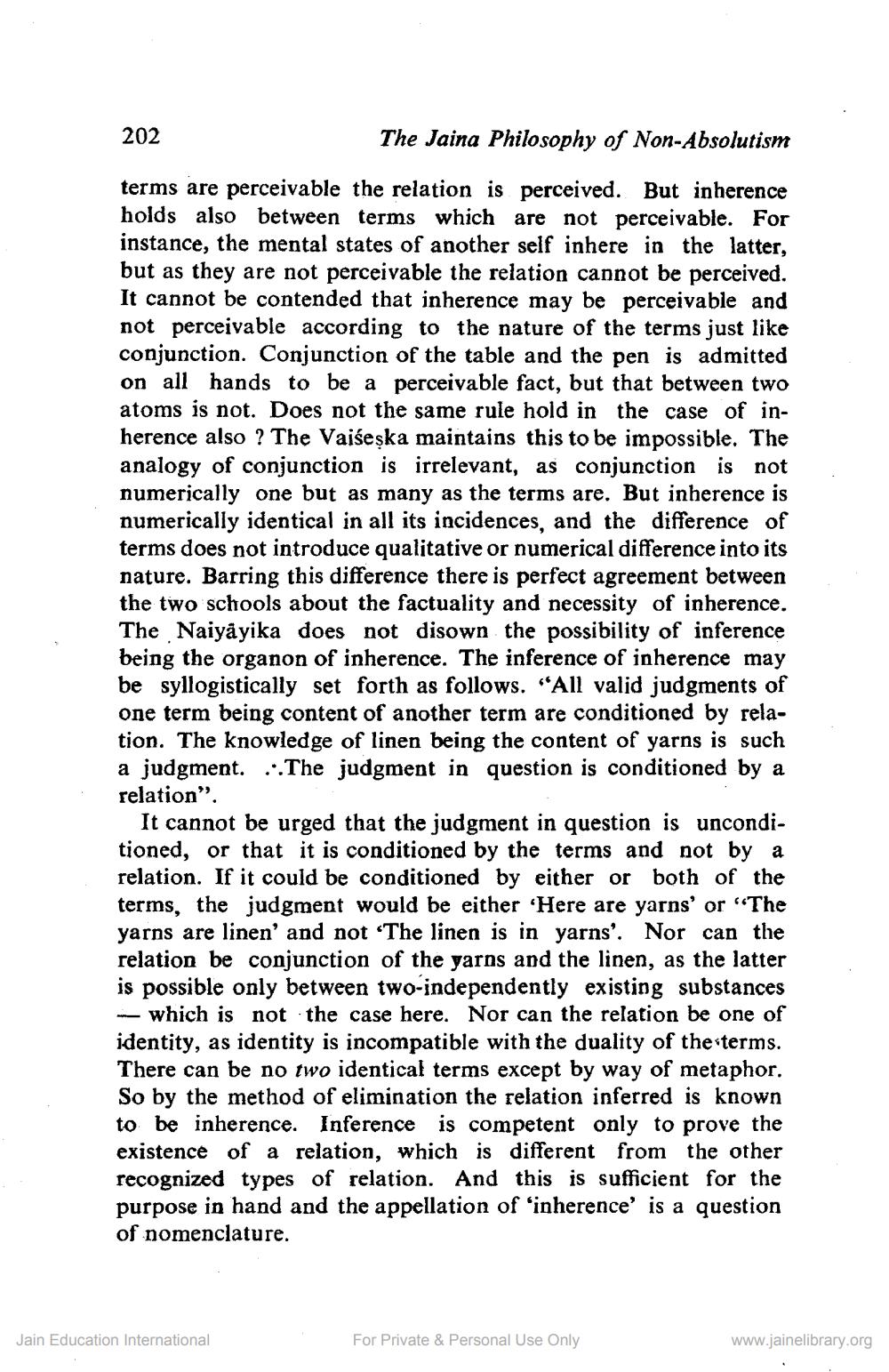________________
The Jaina Philosophy of Non-Absolutism
terms are perceivable the relation is perceived. But inherence holds also between terms which are not perceivable. For instance, the mental states of another self inhere in the latter, but as they are not perceivable the relation cannot be perceived. It cannot be contended that inherence may be perceivable and not perceivable according to the nature of the terms just like conjunction. Conjunction of the table and the pen is admitted on all hands to be a perceivable fact, but that between two atoms is not. Does not the same rule hold in the case of inherence also? The Vaiśeşka maintains this to be impossible. The analogy of conjunction is irrelevant, as conjunction is not numerically one but as many as the terms are. But inherence is numerically identical in all its incidences, and the difference of terms does not introduce qualitative or numerical difference into its nature. Barring this difference there is perfect agreement between the two schools about the factuality and necessity of inherence. The Naiyayika does not disown the possibility of inference being the organon of inherence. The inference of inherence may be syllogistically set forth as follows. "All valid judgments of one term being content of another term are conditioned by relation. The knowledge of linen being the content of yarns is such a judgment. ...The judgment in question is conditioned by a relation".
202
It cannot be urged that the judgment in question is unconditioned, or that it is conditioned by the terms and not by a relation. If it could be conditioned by either or both of the terms, the judgment would be either 'Here are yarns' or "The yarns are linen' and not 'The linen is in yarns'. Nor can the relation be conjunction of the yarns and the linen, as the latter is possible only between two-independently existing substances
which is not the case here. Nor can the relation be one of identity, as identity is incompatible with the duality of the terms. There can be no two identical terms except by way of metaphor. So by the method of elimination the relation inferred is known to be inherence. Inference is competent only to prove the existence of a relation, which is different from the other recognized types of relation. And this is sufficient for the purpose in hand and the appellation of 'inherence' is a question of nomenclature.
Jain Education International
For Private & Personal Use Only
www.jainelibrary.org




